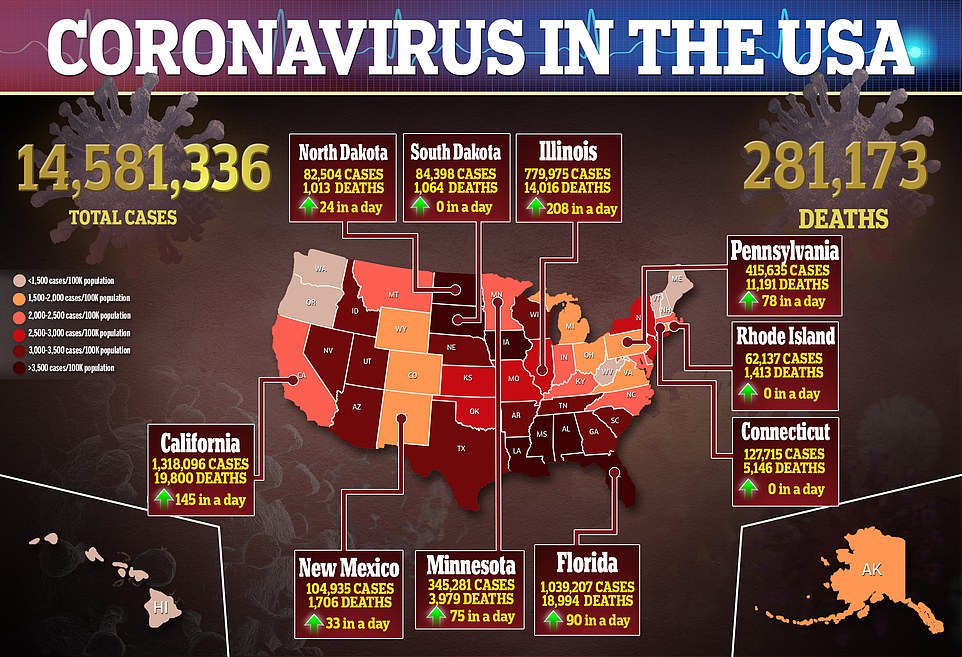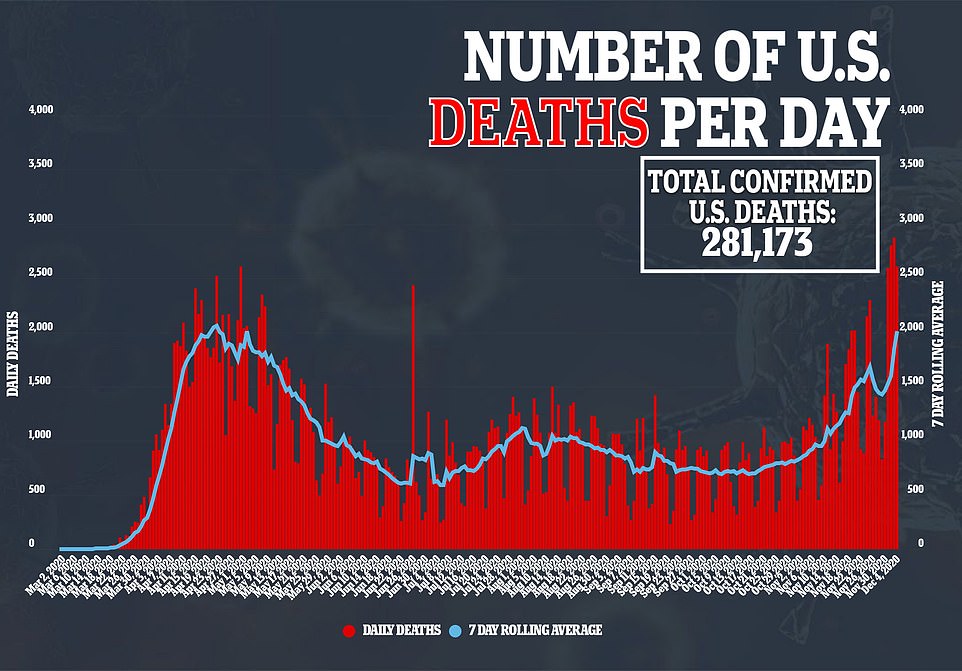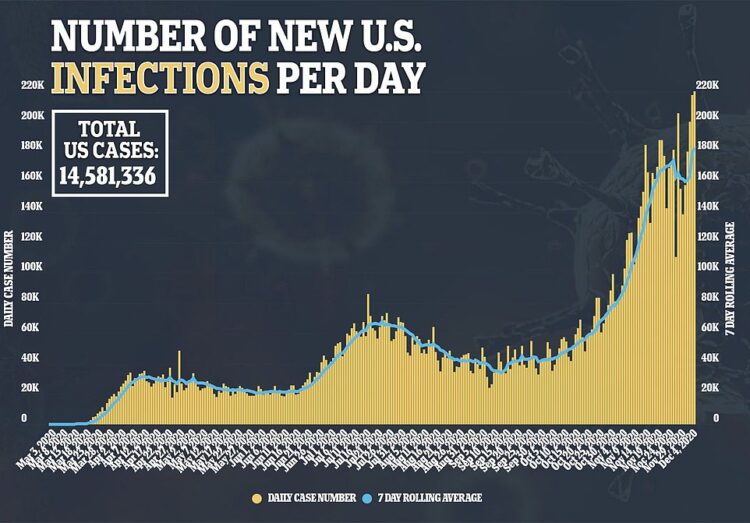The United States has recorded one million new coronavirus cases in just five days.
White House coronavirus task force coordinator, Dr Deborah Birx, expressed frustration today over the mixed messages coming from the Trump administration that are reflected in some Americans’ perception about masks, social distancing and superspreader events.
“This is not just the worst public health event,” Birx said in an interview. “This is the worst event that this country will face, not just from a public health side.”
Between Tuesday and Saturday, the US reported 1,000,882 new COVID-19 cases, according to Johns Hopkins University data.
To put that in perspective, it took 100 days to reach one million infections after the first cases of the virus were reported on January 20.
The US total now sits at more than 14.5 million cases and at least 281,199 deaths from the virus.
Individual US states scrambled today to impose lockdowns to stem coronavirus spikes amid a lack of national leadership on how to curb infections until vaccines are widely available in the spring.
‘Right now, across the Sun Belt, we have governors and mayors who have cases equivalent to what they had in the summertime yet aren’t putting in the same policies and mitigations that they put in the summer, that they know changed the course of this pandemic across the South,’ Birx said. ‘So it is frustrating because not only do we know what works, governors and mayors used those tools to stem the tide in the spring and the summer.’
Only about half of the 50 US states have enacted new restrictions in the last month as cases, deaths and hospitalizations hit record levels nationwide. Fourteen states do not mandate masks.
President-elect Joe Biden, who defeated Donald Trump in the November election, has said that upon taking office on January 20 he will enact mask mandates where he has authority, such as federal buildings and for interstate travel.
As cases continue to surge, the race to acquire a vaccine for distribution has picked up with officials from the Food and Drug Administration (FDA) possibly approving a drug from Pfizer as early as Thursday.
Top Trump medical adviser, Moncef Slaoui, said today that he’s confident the FDA will approve the coronavirus vaccine from Pfizer this week.
‘Based on the data I know I expect the FDA to make a positive decision, but of course, it’s their decision,’ said Slaoui, the chief adviser to Operation Warp Speed told CBS Face the Nation.
But White House coronavirus task force coordinator Deborah Birx warned Americans not to let their guard down even so.
Birx, speaking on NBC’s Meet the Press, noted that more than 100 million Americans suffer preexisting heath conditions that put them at high risk if they contract the virus.
The vast majority of those won’t have access to the vaccine for months still.
‘I want to be very frank with the American people,’ Birx said. ‘The vaccine’s critical, but it’s not going to save us from this current surge. Only we can save us from this current surge, and we know precisely what to do.’
In a separate interview on CNN’s State of the Union, Slaoui said that in his opinion, the vaccine’s effectiveness could last for ‘many, many years,’ with older people and others who are more vulnerable requiring a booster every three to five years.
He said that one of the hallmarks of immune systems is memory, so the body’s response to the coronavirus will be much faster once vaccinated.
Still, Slaoui said it’s not known whether vaccinated persons could spread the virus to others even if protected themselves. He said there may be an initial indication on that sometime in February or March.
Slaoui stressed that the continuing unknowns make it important for people to remain cautious and take safeguards to protect themselves and others against COVID-19.
He said that once 70 to 80 per cent of the population is vaccinated, ‘the virus will go down’.
On Saturday night the Covid Tracking Project reported 211,000 cases, and 2,445 deaths and there are 101,190 people currently hospitalized with the virus in the US.
New data suggests that a smaller percentage of patients with COVID-19 are being admitted to hospitals because the nation’s healthcare systems are being overwhelmed by the staggering number of new infections.
‘Every single day, thousands more people are getting this virus, and we know that means that in a few days, in a week, hundreds of people are going to be coming to the hospital and hundreds of people are going to die,’ Dr Shirlee Xie, an associate director of hospital medicine for Hennepin Healthcare in Minneapolis, told CNN.
Two sets of data show that the percentage of those who are admitted to the hospital once testing positive is decreasing.
Hospitals are being forced to tighten their restrictions on who is admitted, suggesting that some patients who may have been hospitalized for treatment during the spring and summer wave are now being turned away as deaths from the virus also increase.
The seven-day average for reported COVID-19 deaths rose to 2,123, the researchers found – surpassing the previous high of 2,116 recorded on April 21.
‘Given data drops and spikes on and after Thanksgiving, the seven-day-average is an especially useful metric to watch right now,’ their analysts warned.
Trump has planned 20 White House Christmas gatherings, and photos on social media from parties already held show crowds of maskless attendees in close proximity.
On Friday, President-elect Joe Biden criticized the Trump administration over their response to the coronavirus. He said that ‘there’s no detailed plan that we’ve seen’ for how to get vaccines out of a container, into syringes and into people’s arms.


